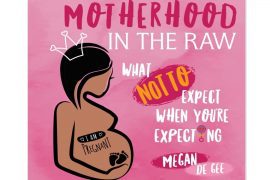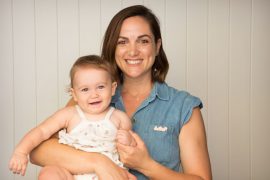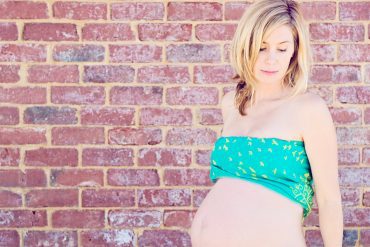So, why has birth become steadily ‘safer’ over the years as birth has moved to hospital? The answer is simple. Along with poverty reduction, caesarean operations are now safer, thanks to antibiotics. The mass exodus from home to hospital has not made a difference in safety outcomes, more that, the very few women who do face complications now have the option for a ‘safe’ caesarean operation. In recent times, caesareans have become safer. For example, they are now quicker and doctors make a transverse incision by your bikini line rather than a vertical incision. This does not mean however that c-sections are a safe alternative. Far from it.
You might raise an eyebrow to the statement “very few women who do face complications”. Some may not believe such a small percentage of women experience complications. After all, the horror stories that everyone has heard, the number of women you know who have ‘needed’ a c-section can’t all be without reason surely? I would not blame you for reaching the conclusion that birth is inherently dangerous.
Let’s examine why birth is still predominantly taking place in hospitals. First of all, we must not confuse the word ‘common’ with ‘normal’. For example, a breech presentation is most certainly a variation of normal, and delivering your baby vaginally as such is also normal.
With a skilled midwife who is experienced in breech birth, you should expect a safe outcome. This does not mean breech birth is ‘common’. Conversely, induction of labour is ‘common’, but does not mean the practice is ‘normal’.
Let’s use the United States as an example going forward. Although statistics will differ from country to country, America’s obstetric practice is where we are all heading if we do not take heed to warnings made by countless professionals such as ‘Michel Odent’.
The WHO states that if a hospital’s caesarean rate exceeds 10%, there is no better outcome for mother and baby. So why do 1 in 3 humans ‘need’ surgery to be born? Research is clear. Home birth is safer for healthy women (Hutton et al 2019). In fact, we have evidence to suggest that home birth isn’t just for the lucky few who manage to tick all the boxes for ‘low risk’. Studies show that home birth is also safer for ‘high risk’ women (Li et al 2015 ) and (Halfdansdottir et al 2015).
I must pause for reflection on how offensive, unhelpful and even inaccurate this language of ‘high risk’ can be. For example, being told you are ‘high risk’ because of your age is laughable. We must take into consideration that hospital guidelines are as low as 9% evidence based. In 1979, Professor Cochrane stated that obstetrics was the least evidenced based medical speciality. Studies that suggest ‘older’ women are high risk are based on the assumption that as we get older our health naturally declines. Yes, of course this can be true, but to label every woman over 35 ‘high risk’ is insulting. It is more helpful for practitioners to look away from their piece of paper and look at the woman in front of them. A 42-year-old yoga instructor with an impeccable diet will certainly not fall into this category of ‘high risk’ just because she happens to fall into this age bracket. So ladies, please question everything! It is not up to you to prove your body will work normally; it is up to them to prove it wont! You are not on trial! Anyway, I digress.
Let’s examine the forever growing caesarean section rate. Over the years, caesareans have been performed as a safe alternative for no apparent medical reason. Women are able to schedule a c-section, just because they want to. While I support any woman’s decision to birth exactly how they like, including an elective caesarean section, I highly doubt the majority of the decisions are informed. Informed consent is critical.
Women should have autonomy over their bodies, and should they choose to birth in the woods, in water with dolphins or book an elective caesarean, that is their choice and should not be judged! Do women really have informed consent? In my humble opinion. No.
“Caesareans are associated with short and long-term risk which can extend many years beyond the current delivery and affect the health of the woman, her child, and future pregnancies.” (WHO, 2015)
Caesareans are safer than they have ever been when genuinely needed, however when this type of surgery is overused, the harm certainly outweighs the benefits. Women are seldom told (and in my experience, NEVER told by the hospital) about the critical role of the human microbiome. The microbiome jump starts your baby’s immune system, digestive system and helps to prevent infection. This process takes place during birth. The baby is covered in this good bacteria inside the birth canal. After that, skin-to-skin contact and breastfeeding continues to seed your baby with good bacteria. A caesarean severely compromises this process. “This bacterial coloniser-immune system link — together with other factors — could explain why caesarean section babies are statistically more prone to develop allergies, chronic inflammatory diseases and metabolic diseases” (Wampach et al 2018).
Babies born by caesarean are more likely to suffer with childhood allergies, eczema and asthma. Unless you are inclined to do your own research, hire a doula or just stumble across this information, the chances of your doctor volunteering this information are almost zero.










